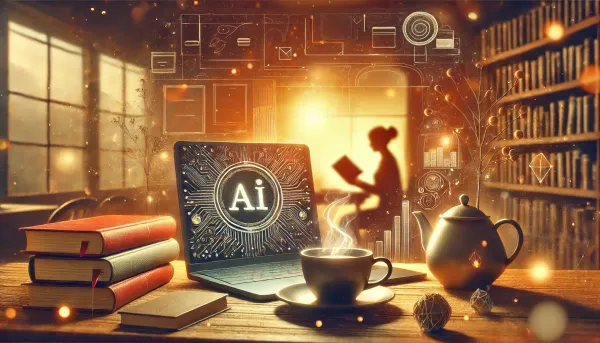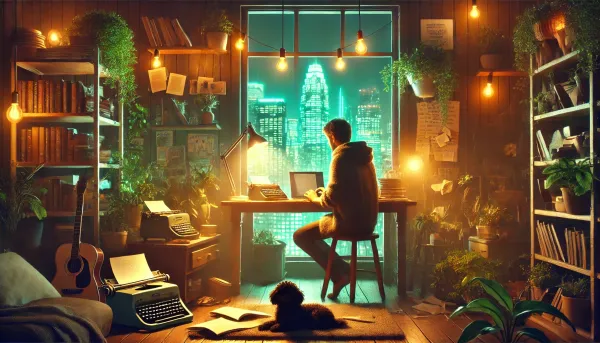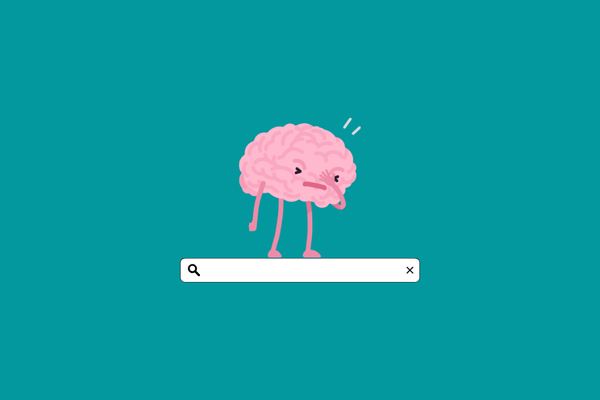On how AI might change SEO
The world doesn’t need another article about ChatGPT. I don’t want to deal with AI. But it is here to stay with its opportunities and challenges. So why not discuss them?
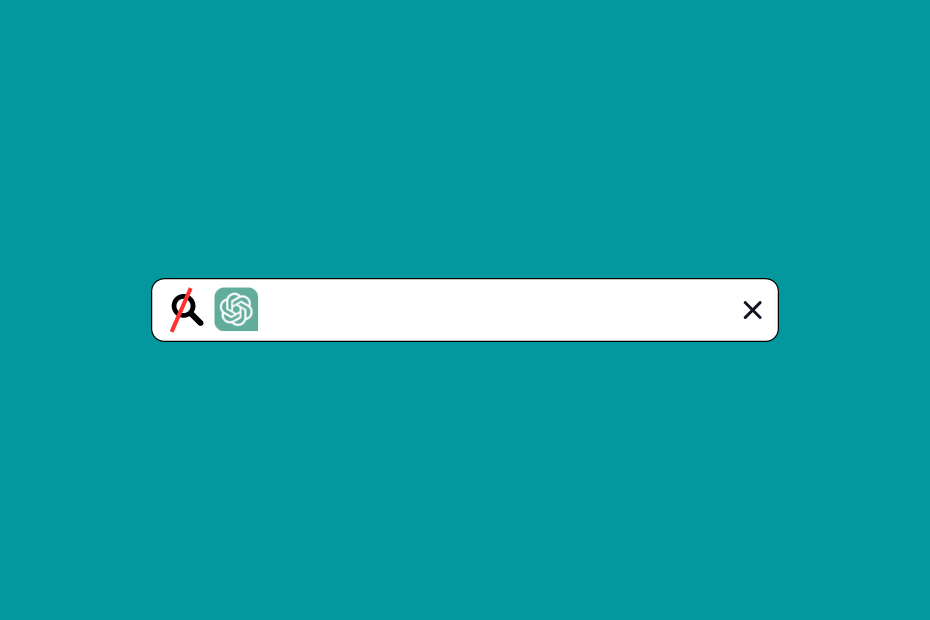
I feel a little bit tired.
As an SEO I got used to constant change. Algorithm Updates come and go, organic traffic spikes and decreases, Google adds one more rich result to wipe out the traffic of organic searches, or big G adds a new requirement like Core Web Vitals.
I came to the conclusion that SEO is the river you can not step into twice. This river makes the passenger's job every year a little bit harder. You need to find the shallow waters, you need to be more clever, and you need to swim faster.
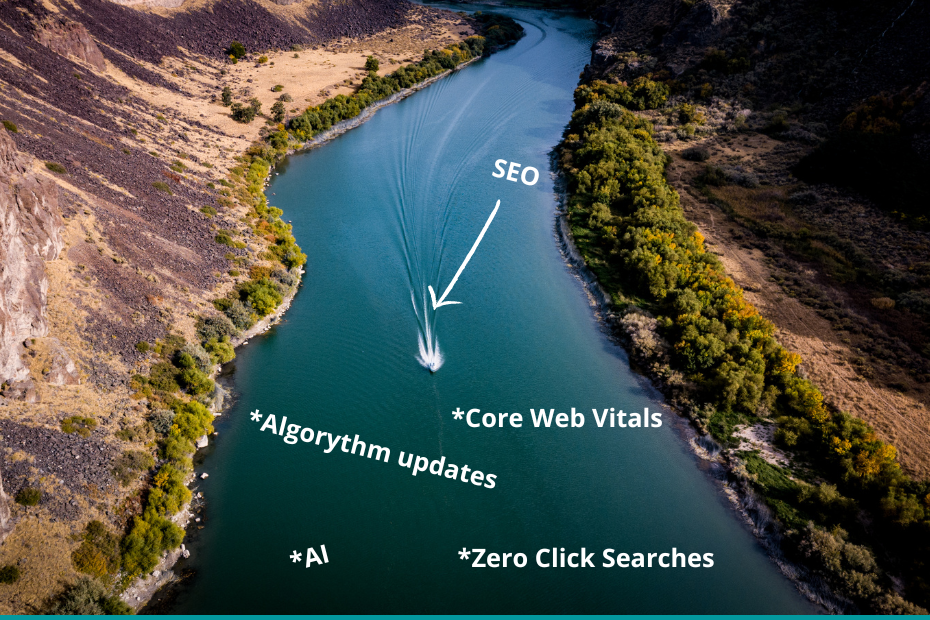
I tried to stay afloat and progress by focusing on the things that looked like constant. Create content I would be happy to read myself. Organise information that would help Google understand my sites.
Clean, create, optimize.
Trends outside of SEO knocked on the door. Voice search, crypto, the metaverse. None of them convinced me particularly. I stuck to my paddles and did not let trends drift me.
And it worked.
Heads down working on stuff that matters served me well.
I followed the same pattern when I saw the release of ChatGPT and the sudden rise of generative AI tools like DALL-E or Midjourney.
I played around with them the same way as I put some monopoly money into bitcoin. But this time something was different.
Broken paddles and a river without water
OpenAI released ChatGPT in November 2022. The product needed 5 days to reach 1 million users which made even reluctant folks like me interested. ChatGPT is hand down one of the most accessible pieces of tech which is capable of spectacular things.
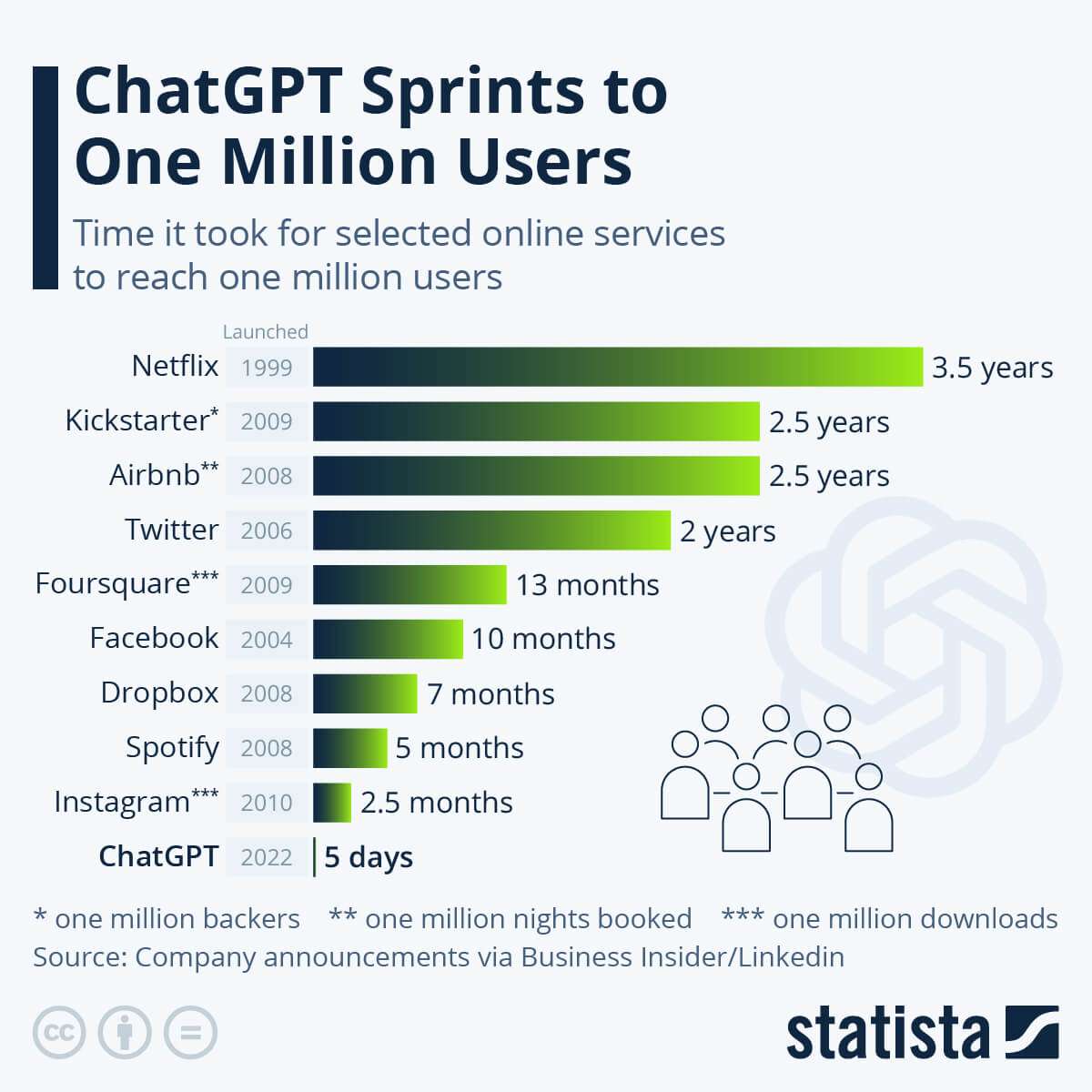
With the chat interface, OpenAI lowered the bar of entry to get a taste of what AI is capable of. And by using ChatGPT we can do useful work from day one.
Non-developers can ask the tool to write code that works, ChatGPT can provide ideas on what to write about, and actually can write a decent-looking article. It can automate monotone processes like classifying keywords, creating content strategies, or writing templates for outreach campaigns.
The best thing is that ChatGPT was not specifically nurtured to do any of this.
The model was trained on 570GB of data available on the internet. It became capable of translating text from French to English besides hundreds of other impressive things as a byproduct.
ChatGPT provides a glimpse of what artificial intelligence is capable of.
And without debate even at this stage, AI can do some work better than humans.
When it comes to SEO the road looks even bumpier than before.
What AI-generated content brings to SEO?
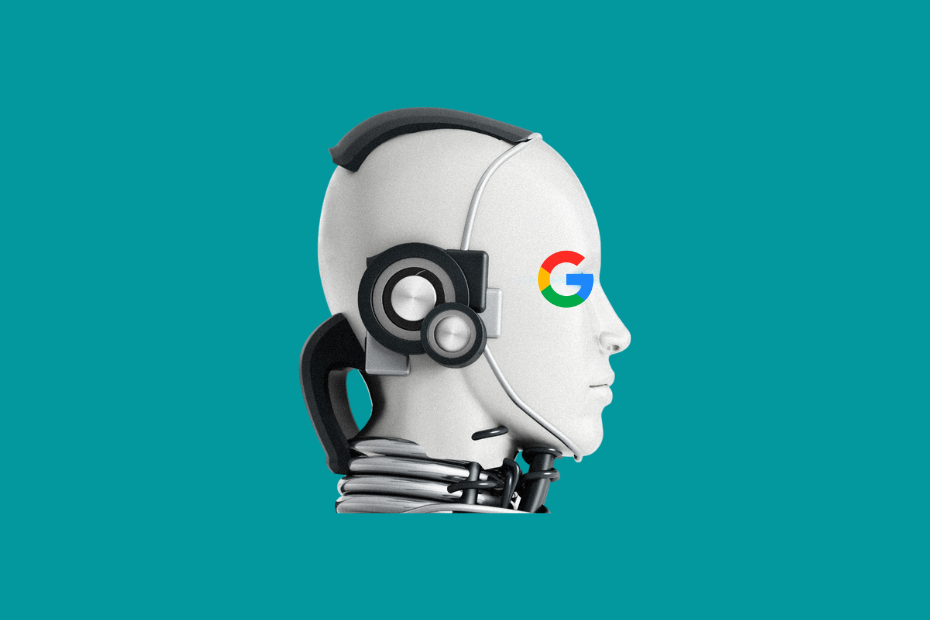
On one side there is the possibility to use AI-generated content to rank better in search. We can use AI to write a summary of articles, create an FAQ section, to construct an enticing meta description.
We can expand our content with AI which leads to better content.
For this I am excited.
But AI can write the article by itself. It can generate the illustration by itself. There is a possibility of mass-produced content flooding the internet. There are folks already doing this, which is a real threat if you are on the other spectrum of the value creation matrix.
I feel a similarity between machine-generated and plagiarised content. During the time when human created content was not mainstream yet, you could just go and copy other people’s work to republish it. You could do the same as a freelance copywriter assigned a task.
But over time search engines could pick up which content was the original one and simply ignore the copycat. Even content managers could identify plagiarised content with tools created for that purpose.
The detection of AI-generated content research predated the launch of ChatGPT and there are already a ton of tools doing that.
Though Google is not against AI-generated content. If you can create helpful content with AI it may reward you. But I wonder how helpful an article can be generated with 5 seconds of prompting by anyone without any significant cost.
My bet is that solely AI-generated content will cause some disturbance in the short run still platforms prepare to detect them, though on the long-run they don’t stand a chance.
I am rather excited about how AI will change the way we collect topic ideas to cover, how we use ChatGPT to do research, and how we enhance our content.
The content marketer’s AI copilot looks like an interesting route.
And it is already happening with Notion bringing AI capabilities to the masses and other tools integrating AI-powered features.
Disruption in Search? Bard and Sydney
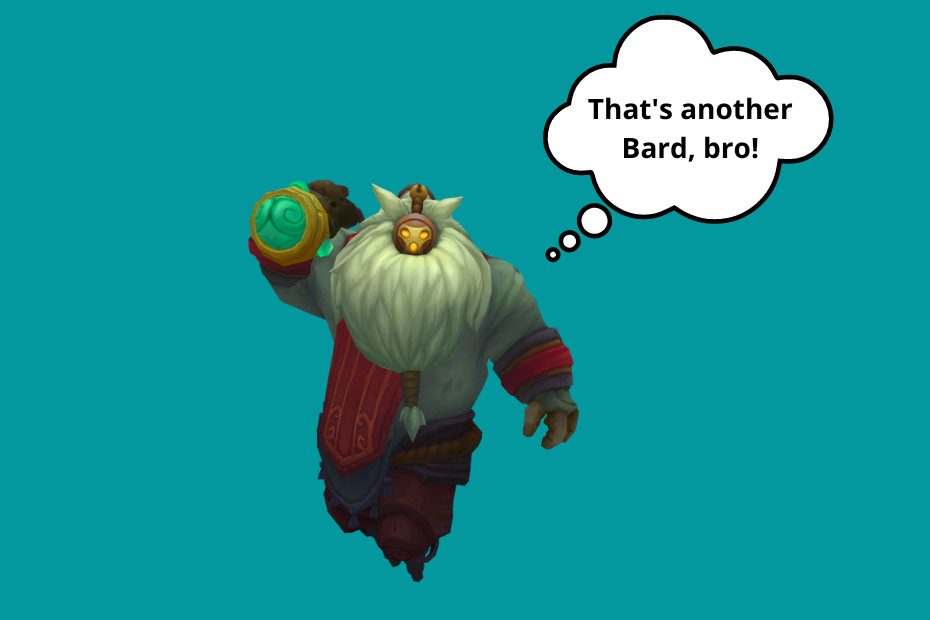
If I put on my ignorant hat, I could say that the AI we saw so far does not really disrupt the search game.
If AI-generated content will be detectable and the content AI produces stays reshuffling existing knowledge instead of creating new insights, then it still can not beat creating truly good content.
But there is another side to the coin.
If search traffic is a pie, then AI-generated content will cut out a slice of the pie which can be disturbing but not life-changing for website owners. The other implication is that it can happen that the pie shrinks or simply disappears.
ChatGPT clones integrated into search can accelerate the trend we saw with featured snippets and zero click searches: search engines will use scraped content (or content they used to train the AI), they may credit the source, but the showed answer in search will be so good that the searcher will have no intention to click on the result and arrive on a website.
As I user of search I am excited to use Bard and Sydney, but as an SEO I am concerned about the loss of traffic coming from informational terms.
The challenges of machine-generated content
It is exciting to see the evolution of artificial intelligence play out before our eyes, though there are questions nobody really answered yet.
There are issues that are troubling
- for creators whose content gets reshuffled by AI,
- for users of the AI product who were shown false information,
- and for professionals whose jobs got automated at a lightning speed.
Quality of content and deleted entry-level jobs

Images generated by Midjourney are much better than I will ever be able to paint. There are thousands of topics where ChatGPT can already write a better article than a ghostwriter without industry experience.
AI can already generate good enough content.
This will probably have an immediate impact on the need for content providers, content marketing agencies, and unspecialized freelance writers.
In fact, two-sided marketplaces (whose business model is built on connecting content-seeking clients with writers and taking a cut for themself) are already experimenting with AI-generated content at scale.
If you look at an article written by a low-paid, inexperienced writer using the skyscraper technique and an article generated by AI it can happen that the last is better at quality.
OpenAI lowered the bar for ordinary people to use AI, while AI will increase the bar for a plethora of entry-level jobs.
This is not necessarily bad.
I have written enough 200 words long fluff about diapers inserted to the bottom of e-commerce category pages to know how liberating it is to do more valuable work.
Though I was impressed by machine-generated content, none of the final products particularly caught my attention.
They are like the 199th Twitter thread from a productivity guy who shares five tips on how to earn your first million (cold shower, journaling, meditation, training, gratitude).
They look solid, but they don’t inspire me. They don’t invoke any feelings. They look like a mass-product commodity.
When Tim Ferris asked legendary music producer Rick Rubin what He thinks about AI he gave a similar answer:
“I’ve also not seen any — personally, thus far, I’ve not seen any computer-generated images based on instructions that have moved me in any way. I haven’t felt them, I haven’t felt them. I may see them, I might laugh at them or I might think, “Oh, that’s a funny cartoon,” but never does it make me want to learn more or go deeper or feel something bigger.“
But meta descriptions and affiliate articles are not art, and AI will easily beat us in generating those.
Where the joy comes 100% from the final product and not from the creative work invested beforehand, we can expect AI to be better than humans.
Will it ever be better to create really good content?
I don’t know.
I hope not.
Copyright and AI in the pursuit of evil
There are already controversies about training data on creators' work and not giving any credit to the author in the end product (and AI tools sometimes mix even signatures into the final result).

Hoping that legislation will save us and there will be any global AI copyright law enforced is simply nativity.
The big tech spent long years selling user data and using others’ content to enrich with ads without giving them revenue. And even the first countries to step up harshly (and force Google to pay or ban services like Google Analytics) waited almost two decades.
The future of AI will be shaped by the companies developing and marketing it rather than by legislators.
The phase-out of third-party cookies was rather driven by the industry than by the silly law called GDPR, so we can expect similar dynamics when it comes to the much faster-changing landscape of artificial intelligence.
Copyright and SEO content may be the smallest thing we can be afraid of when it comes to AI.
Brad Smith, the Vice Chair and President of Microsoft wrote that not every change enabled by AI will be good and artificial intelligence will bring “new ways to advance the pursuit of evil”.
He mentions the acceleration of misinformation and the ways AI can undermine democracy.
Will AI change SEO?
SEO is continuously changing.
Though AI may bring even more sudden changes to search marketers. Even if search engines will be able to detect and filter out AI-generated content, there will be always clever marketers to play out the system and benefit from a slightly different approach, just like they are doing now with scraped content and miraculously working PBNs.
The search chat functionalities though may bring even bigger changes for clickable search results and answering questions right away in Bing and Google.
There is also a chance that search, as we know it today, will change and we will rather use solely ChatGPT or a new tool built on top of the advancements in AI.
But still: this is some silly speculation on a blog that the next version of ChatGPT may use as training data.
Let's see how this plays out.

